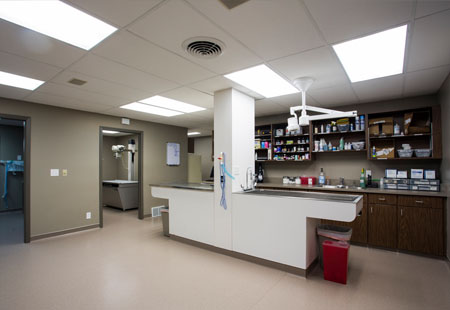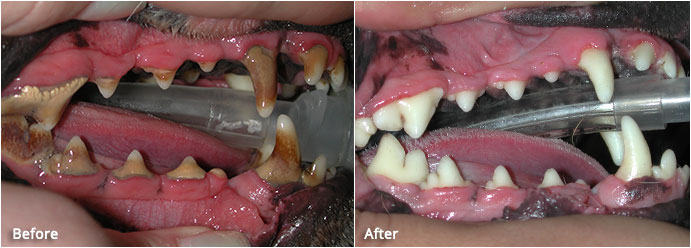Mon - Fri: 7:30am - 5:00pm
Sat & Sun: Closed
Pet Dental Care
Omaha Pet Dental Services

You are a responsible pet owner and you take good care of your pet. But do you always remember to take care of your pet's teeth? At Omaha Animal Hospital, we offer comprehensive Omaha pet dental services to help.
Dental disease, specifically periodontal disease, is the most common ailment affecting pet dogs and cats. According to the American Veterinary Dental Society, more than 80 percent of dogs and 70 percent of cats develop gum disease by the age of three years. Periodontal disease can have a serious impact on both your pet's well-being and general health.
Regular veterinary dental check-ups at Omaha Animal Hospital, combined with good dental hygiene at home, can increase your pet's health, vitality, and well-being and help ensure your pet leads the best life possible.
If left untreated, dental disease can not only be painful and inhibit proper nutrition, but it can also lead to serious systemic issues that may threaten your pet's overall health before symptoms are noticeable. For those reasons, our veterinary team strongly considers dental care an important piece of your dog's or cat's preventive health care program.
Protecting Your Pet's Dental Health
Just like in humans, infection and inflammation of the gums and supporting tissues of the teeth are caused by bacteria present in plaque and tartar. When tartar builds up on your pet's teeth, it can lead to bad breath, bleeding, receding gums, and even eventual tooth loss.
Dr. Berglund and his staff believe that the centerpiece of good dental care is a complete oral exam followed by a thorough cleaning designed to remove plaque and slow its buildup.
At Omaha Animal Hospital, your pet's dental appointment includes:
- Oral examinations under anesthesia
- Diagnosis and treatment of periodontal disease
- Supra and subgingival scaling
- Tooth extractions
- Polishing
- Irrigation
- Fluoride application
Should we find any issues, such as evidence of gum or tooth erosion, gingivitis, or excessive plaque buildup, we will discuss this with you and offer treatment options for your pet. We are experienced dental practitioners and are capable of offering a number of dental procedures and oral surgeries.

Caring for Your Pet's Teeth and Gums at Home
You can prevent serious dental problems by making sure your pet receives dental exams at the time of each vaccination, again at 6 months of age, and then annually. In between visits to your veterinarian at Omaha Animal Hospital, check your pet's teeth regularly for signs of problems. Brushing your pet's teeth is the single most important procedure you can do to maintain good oral health. If performed regularly, brushing dramatically decreases the incidence of gingivitis and can increase the interval between teeth cleaning appointments.
If you are unsure of how to brush your pet's teeth, please ask a staff member at Omaha Animal Hospital for instructions.
Signs of Pet Dental Problems
Halitosis, or bad breath, is the most common sign of dental disease. Classic "doggy breath" is not necessarily normal. The major cause of halitosis is periodontal disease. This is an infection of the gums and potentially the other supporting structures of the teeth. Plaque builds up every day on the tooth surface including at the gum line.
Left in place, the plaque can mineralize, or harden, in less than 2 days, forming calculus or tartar. The continued build-up of tartar both above and below the gum line can eventually produce an environment for certain types of bacteria that may be more destructive to the periodontal tissues and also produce a more noticeable odor.
Other symptoms of dental disease include:
- A yellowish-brown crust of plaque on the teeth near the gum line
- Red and swollen gums
- Pain or bleeding when your pet eats or when the mouth or gums are touched
- Decreased appetite or difficulty eating
- Loose or missing teeth


